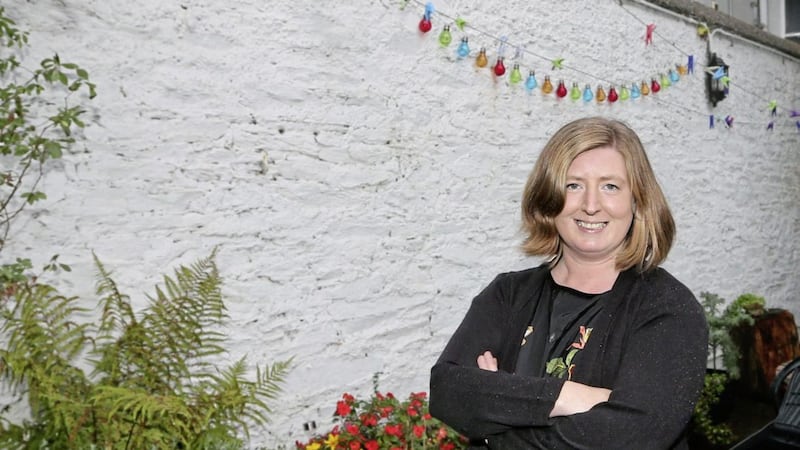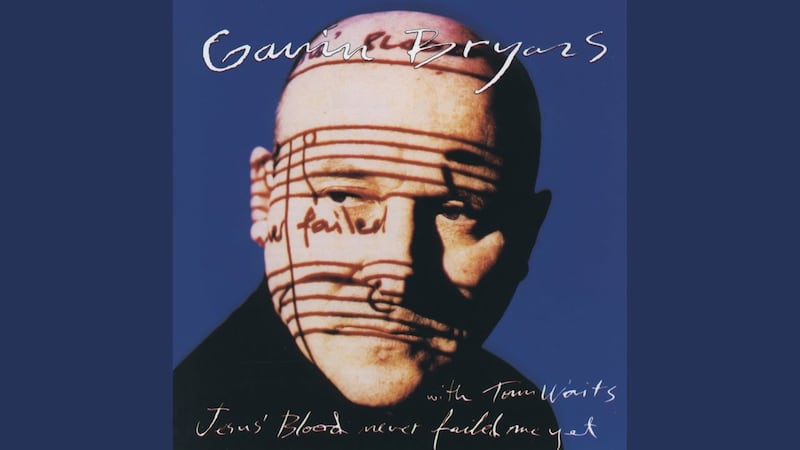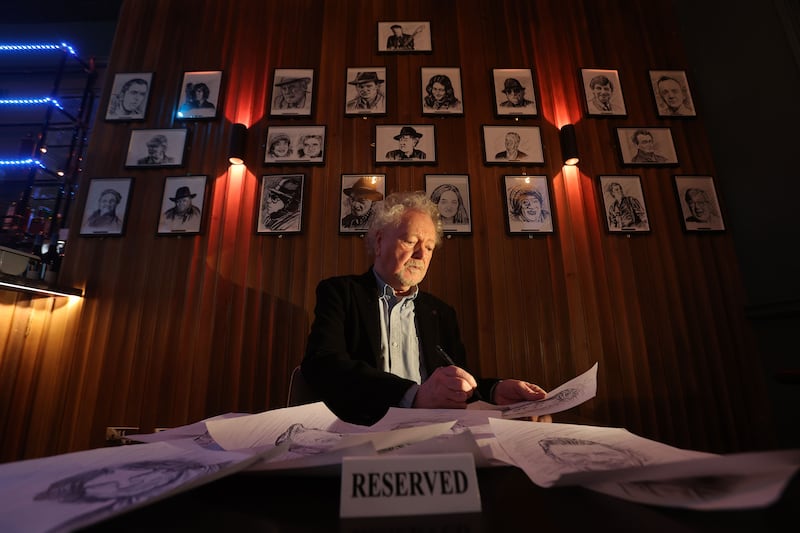IT WAS en route to a poetry gig in Belfast that Co Tyrone woman and organiser of the first Omagh Pride parade Cat Brogan finally told her mother she was gay.
"This was just before I recited a poem that was fairly graphic about female desire," she guffaws.
The 36-year-old is searingly honest and brimming with energy and opinions. So, I suggest, it must have been akin to torture to keep such an essential part of herself secret from family and friends for so long.
"When you are used to hiding such a big part of your life, of who you are, you end up hiding other parts of your life," she says.
"Instead of authentically just being yourself, you are always making calculations. Is this going to cause problems? Is this going to be an issue? Am I going to have to explain this?
"Coming out definitely made me less angry, more calm and at peace.
"I didn't feel I had to be on the defensive or that I was being attacked all the time.
"There's a lot of guilt and shame, and an element of religious trauma, for a lot of queer people."
The toll that living a lie can take on both mental and physical health is well-documented.
According to the Rainbow Project – which works to improve the physical, mental and emotional health and wellbeing of the LGBT community – research shows they are particularly vulnerable to developing mental health problems due to homophobia, discrimination and oppression.
As a result, they are more likely sometimes to self-harm, feel suicidal, experience depression, misuse alcohol and drugs, suffer from anxiety or develop problems with food.
Bronagh Starrs, an Omagh-based adolescent psychotherapist, says the reason young LGBTQ people suffer disproportionately with mental health issues is because of discrimination, which directly influences wellbeing.
Cat's journey 'out of the closet' is probably similar to many others living in a rural community in the 1980s and 1990s.
One of three children in a close, loving family, she was brought up in Killyclogher, near Omagh.
"I think I was always aware I was attracted to women but it was something I really buried," she explains.
"It was the very early days of the internet so it wasn't possible to find out about these things and what there was, was very negative.
"As a woman, I was really taught that having a boyfriend was like a must-have accessory for a teenage girl. It made you cool.
"I had been bullied so much when I was younger I didn't want to get bullied any more."
So why was she bullied? "I was kind of middle-class, very eager and keen and loved learning," she recalls.
"Then I had the NHS pink glasses and my mum couldn't do any fancy things on my hair because of her disability, so I had a bowl cut – the whole thing was just a disaster.
"It was only when I moved to London when I was 23 that I came out. I had been in relationships with men - lovely men who I still care about deeply – but you feel as if you've been living a lie for a long time."
Writing and performing poetry during her time in London and later in Malaysia proved a cathartic experience, with the performances really allowing her to articulate her feelings.
Cat moved back to Northern Ireland in April this year with her partner, after 13 years out of the country.
The move was prompted by Covid and by a desire to spend more time with her family.
"Because my mum is disabled, I would have come home three or four times a year, and with Covid there was a chance I wouldn't have got back into the country, so I had to make a choice," Cat says.
Her mother, Dympna, suffered a "catastrophic" head injury in 1974 at the age of 20 which left her paralysed down her right side and meant she had to relearn how to read, write and speak.
She still suffers from asphasia, which causes difficulty with language and speech, and mobility problems.
In fact, Dympna has written a book, I'll Be All Right Tomorrow, which chronicles her experiences and her determination to live a full and meaningful life in spite of what happened.
As for her daughter's coming out, how did that go down?
"She was super quiet about it and she pretended to be okay but she really wasn't okay about it. It made things a bit difficult between us for a couple of years, but even though it was hard for her, she didn't make it hard for me," says Cat.
"She could see I was so much happier. My mum thinks the most important thing in life is that you have a loving partner who loves you, so once she could see I had that, she was happy. She said she was angry at the start because she was afraid it was going it make my life hard.
"I had already told my dad [Vincent] a few months before that and he was great."
In fact, both her parents and other family members were at the parade in Omagh in September, which attracted a 500-capacity crowd.
Cat, who has a degree in Politics and English from York University and a writer/teacher Master's from Goldsmiths in London, has worked in a number of educator roles and is an award-winning poet, performing her work on radio and at literary festivals.
Now back on home soil, she has taken up a post as active travel officer for cycle and walking charity Sustrans, which she is embracing with her usual enthusiasm.
She firmly believes that life has improved vastly for the LGBT community, especially in rural areas, thanks largely to the internet which enables people to access information and a like-minded community.
But she also believes there is still "a lot of healing" that needs to happen, especially for older LGBT people here "who feel robbed of their opportunity to live a full life open and honestly, and without judgment or shame or fear".
The Pride Parade, which she organised with friend Lorraine Montague in just three months, was her way of bringing the local LGBT community into the open and a chance for the whole town to celebrate diversity, inclusion and equality.
"But there can then be this dissonance between the world you are discovering online and the world you are in," she adds, referring to opposition to the parade which included protests, leaflets being put through doors and an advertisement.
"I think I am incredibly lucky because of my family," she adds. "That's your primary community, so having that love and acceptance from them is the foundation on which everything else keeps on growing."
Cat was diagnosed with attention deficit hyperactivity disorder (ADHD) this year which, she admits, "did not come as a massive surprise".
"It's a bit like a superpower. It gives you the ability to get lots of things done and act really quickly but it's also important to be aware of how it affects your loved ones," she explains.
"The diagnosis has made me more conscious of my behaviour and how it might be problematic.
"It's about coming into conscious awareness of who you are, and accepting that you don't have to fit in, and seeing the beauty of it. That's pretty powerful.
"If we try to make everybody the same, we lose as a community."








